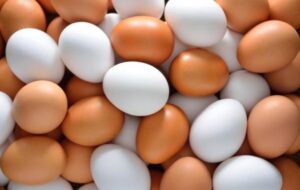
Ukrainian egg producers exported 2.05 billion eggs in 2025, which is 65.5% more than a year earlier, while cash proceeds increased 2.8 times to $201.9 million, according to the Ukrainian Poultry Association (UPA).
The industry association noted that the most active buyers of Ukrainian eggs in 2025 were Spain (16.4%), the United Kingdom (11.9%), the Czech Republic (10.3%), Poland (10.0%), Croatia (8.7%), and Israel (7.8%).
Exports of egg products in 2025 amounted to 8.2 thousand tons and brought Ukraine $47.8 million, which is 2.6% and 40.3% more than in the previous year, respectively. The largest importers of this product were Latvia (24%), Italy (23.8%), Poland (17.2%), and Denmark (12.6%).
“Ukraine was able to strengthen its trade presence in the European market for eggs and egg products, with the share of EU countries reaching 73.4% and 92.6% of total exports of these goods in 2025. A significant reduction in egg production in EU countries due to the difficult epizootic situation over the past year and the need for a long recovery period led to price increases in the European market and contributed to increased demand for Ukrainian products,” the APU explained.
According to the association, the Ukrainian egg production sector is gradually recovering after a significant reduction in livestock and loss of production capacity in eastern and southern Ukraine at the beginning of the war.
“Due to the significant reduction in population and its low purchasing power, exports play a decisive role in balancing the domestic market and ensuring the country’s food security,” the business association emphasized, recalling that Ukrainian poultry producers are currently operating in extremely difficult conditions of martial law caused by security risks, the energy crisis (power outages), the disruption of logistics chains, and a sharp increase in production costs.

In January-November 2025, Ukraine exported 118.62 thousand tons of eggs in shells, which is 66.6% more than in the same period of 2024, according to the State Customs Service.
According to published statistics, in monetary terms, egg exports increased 2.7 times, to $183.37 million, compared to $67.14 million a year ago.
The top three buyers of Ukrainian eggs were Spain, which accounted for 17.9% of exports of this product, or $32.76 million in monetary terms, the United Kingdom – 14% and $25.69 million, respectively, and the Czech Republic – 11.6% and $21.19 million. Last year, Israel led the way in purchasing Ukrainian eggs, accounting for 14.8% of exports worth $9.91 million, followed by Poland with 11.9% worth $8 million and Italy with 11.1% worth $7.46 million.
Ukraine’s egg imports during the reporting period increased by 18.4% to 9.53 thousand tons, bringing in $54.36 million in monetary terms, which is 48.3% more than in the same period last year.
The leaders in egg supplies to Ukraine during the reporting period of 2025, as in 2024, were the Netherlands (41.4% and 46.3% of imported volumes, respectively), the Czech Republic (28.9% and 24.2%), and Germany (13.9% and 18.5%).
Exports of shelled eggs in the first 11 months of this year decreased by 5.3% to 6.64 thousand tons, while cash proceeds from their sale increased by 26.5% compared to the same period in 2024, to $38.54 million. The main buyers of domestic egg products were Italy (32.5%), Poland (29%), and Denmark (16.8%).
Imports of this product in January-November 2025 amounted to 58 tons, compared to 105 tons a year ago. Suppliers of shelled eggs this year included France (80.7%), Sweden (18.8%), and Poland (0.6%), while in 2024 they were France (85.2%), Sweden (10.9%), and Austria (3.7%).
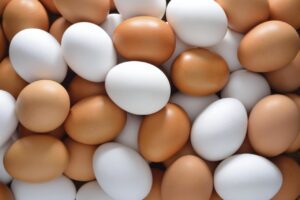
Ukraine and Poland have overtaken the Netherlands to become the largest suppliers of eggs to the UK in 2025, prompting criticism of imports of “cage” eggs, which have been banned in the UK since 2012. This was reported by The Guardian newspaper.
According to the UK’s Animal and Plant Health Agency, Ukraine has exported 8 million kg of eggs to the country since the beginning of the year, Poland has exported almost 7 million kg, and Spain has exported about 5 million kg.
Despite the overall decline in tonnage, the number of shipments has increased — instead of large batches, many small batches began to be exported from countries where cage farming is still common.
Mark Williams, chairman of the British Egg Industry Council, said that British producers are at a disadvantage because they have to invest in stricter standards for keeping birds. At the same time, imported eggs from Ukraine and Poland come from systems that are banned in the UK. He called this “morally wrong” and called on the government to take measures to protect the domestic market.
Egg imports are mostly destined for the catering and food industry segments, rather than supermarkets (where British Lion-labeled eggs dominate). It is estimated that the UK produces about 88% of its own eggs, importing the remaining 12%.
The British government has stated that it is involved in working on new regulations to level the playing field for domestic producers. At the same time, tariff exemptions for Ukraine were extended for many goods after the start of the war, but the “eggs and poultry” category received only a short-term deferral.
Source: https://open4business.com.ua/ukrayina-stala-najbilshym-postachalnykom-yayecz-do-velykoyi-brytaniyi/
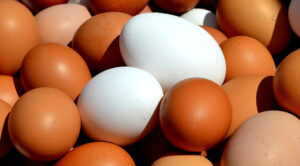
In January-August 2025, Ukraine exported nearly 1.4 billion eggs worth $119.5 million, which is 2.6 times more than in the same period of 2024, according to the Ukrainian Poultry Union.
The industry association noted that in August, Ukrainian producers exported 168.2 million eggs worth a total of $16.4 million, which is 81.9% more than in the same period of 2024.
The main buyers of Ukrainian eggs in January-August 2025 were Spain (11% of total exports), Croatia (10.9%), and the United Kingdom (10.6%).
The largest shipments in August were to Spain (37.1 million eggs), the Czech Republic (28.9 million eggs), and Poland (21.7 million eggs).
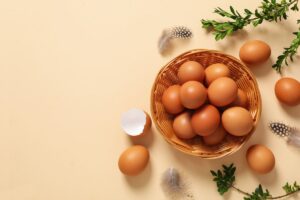
Ukraine has the potential to expand bilateral agricultural trade with the US, particularly in the export of meat, eggs, corn, and queen bees, according to the State Service for Food Safety and Consumer Protection following a working visit to the US by the agency’s head, Serhiy Tkachuk.
The State Service noted that during the visit, Tkachuk held meetings with representatives of three departments of the US Department of Agriculture.
Together with the USDA Foreign Agricultural Service (FAS), the parties discussed increasing bilateral trade in agricultural products. Ukraine has the potential to replace Russian and Chinese products on the American market, the agency assured. Particular attention was paid to opening the US market for Ukrainian poultry and eggs.
Negotiations with the USDA Food Safety Inspection Service (FSIS) focused on access to the US market for Ukrainian poultry meat and eggs. The State Service of Ukraine for Food Safety and Consumer Protection has already provided all the necessary information and expressed its readiness to undergo inspections, including online. This practice has been successfully applied in cooperation with the United Kingdom, Canada, and the EU.
The Ukrainian side emphasized the importance of moving forward with applications for the export of pork and beef, and the FSIS confirmed its readiness to begin technical consultations.
The meeting with the USDA Animal and Plant Health Inspection Service (APHIS) was devoted to the epizootic situation, the procedure for assessing the status of diseases, and inspections.
In addition, the meetings discussed the prospects for exporting Ukrainian corn and queen bees. The American side positively assessed the dynamics regarding corn and promised to consider the issue of bees in the near future.
“These dialogues confirm that even in times of war, the Ukrainian agricultural sector remains a reliable and promising partner. We feel the support of our American colleagues and their willingness to move forward in opening up new opportunities for Ukraine,” concluded the head of the State Food and Consumer Service.
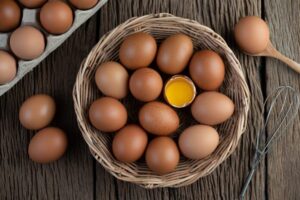
Ukrainian producers exported chicken eggs worth $103.1 million in January-July 2025, which is 2.6 times more than in the same period last year, according to the Ukrainian Poultry Farmers Union, citing data from the State Customs Service.
The industry association specified that in July this year, 190.6 million eggs worth $17 million were exported, which exceeded the figure a year ago by 86%.
The top three importers of Ukrainian chicken eggs in July 2025 were Spain (21.5 million eggs), the United Kingdom (21.4 million eggs), and Poland (22.7 million eggs).
According to the Ukrainian Poultry Farmers Union, the main buyers of Ukrainian eggs in January-July were Croatia (11.8%), the United Kingdom (10.6%), and Spain (9.5%).